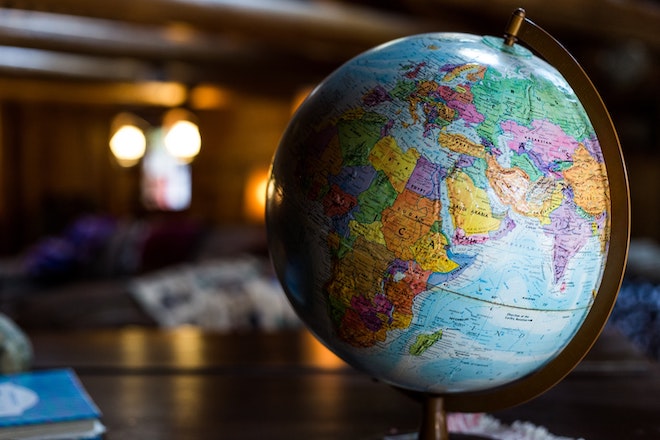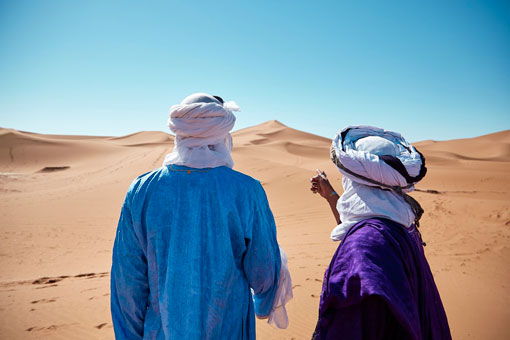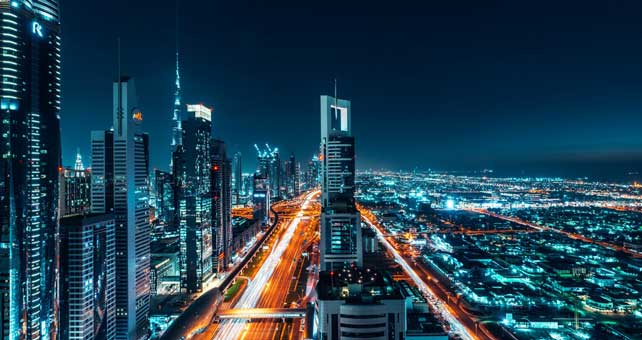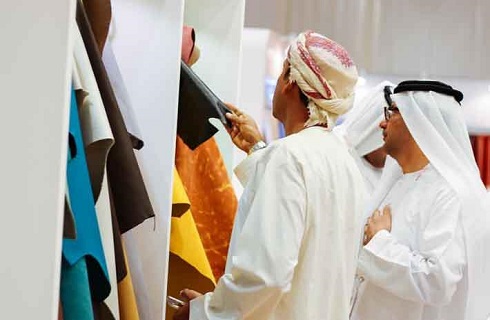Institute for Contemporary Affairs
Founded jointly with the Wechsler Family Foundation
With the Covid-19 pandemic sweeping across the Middle East and North Africa (MENA) region, how are the region’s governments responding to the threat posed?
Some, like the UAE, have been ahead of the curve, taking a slew of pre-emptive measures to minimize infections.
In others, like Iran and Turkey, inadequate, delayed and fragmented responses have resulted in their becoming epicentres of the spread of the virus.
War-ravaged Libya and Yemen, meanwhile, have no capacity to control the virus. Neither does Tripoli and Aden control the entire country in order to take the necessary steps to curb infections.
What is needed are leaders with the necessary foresight to mitigate the impact of the virus while preparing for a regional and international order.
Introduction
With tens of thousands infected across the region and thousands of lives lost, it is clear that Covid-19 will exacerbate governance failures, sectarianism, tensions between secularists and Islamists, and deepen economic cleavages within and between the states.
The impact of the corona virus will serve to exacerbate the multiple crises besetting the region. The esteemed historian Yuval Noah astutely observed, “The storm will pass, humankind will survive, most of us will still be alive, but we will inhabit a different world” (Dorsey, 2020). It is clear that the MENA region will not be the same after this pandemic. What form the post-pandemic region will take is dependent upon the choices governments make.
As in discussion on the environment, while global climate change cannot be wished away, its effects could be mitigated as a result of sound governance. During the influenza epidemic of 1918 some authorities managed to successfully slow the infection and keep mortality rates low, while others acted too slowly and ineffectively and consequently paid a huge price.
This is starkly brought out by the reactions of two U.S. cities – St. Louis and Philadelphia – in the face of the 1918 influenza epidemic. St. Louis responded early and aggressive towards the threat posed. Philadelphia’s delayed response, meanwhile, resulted in eight times more fatalities than in St. Louis (Du Plessis, 2020).
The Nature of the Threat Posed by the Virus and Responses to It
The UAE and Saudi Arabia
As in the case of these American cities, some states in the MENA region have reacted pre-emptively and have contributed to flattening the curve of infections in their countries. The United Arab Emirates, for instance, began implementing social distancing measures whilst the virus was still at its infancy. Saudi Arabia, meanwhile, adopted an aggressive approach towards the virus, including a curfew from dusk to dawn. Riyadh also adopted other radical steps like preventing religious pilgrimage to two of Islam’s holiest places – Mecca and Medina.
Iran
Iran’s belated response and initial denials have transformed it into the epicentre of the Covid-19 pandemic in the Middle East with tens of thousands of infections. The first reported Covid-19 deaths in the MENA region occurred in the Iranian holy city of Qom when two Shia pilgrims died as a result of the virus.
Despite this knowledge, Tehran decided to proceed with the 21 February 2020 parliamentary elections in a dubious attempt to bolster their flagging legitimacy (Riboua, 2020). Soon, every province and every city across Tehran was affected (Gambill, 2020). The lies emanating from Tehran, as well as its refusal to impose a lockdown on its population in February 2020, has also allowed the virus to spread into other countries, including Afghanistan, Bahrain, Kuwait and Lebanon (Frantzman, 2020).
The mullahs in Tehran, meanwhile, have also continued their anti-Western and anti-U.S. rhetoric in the face of the pandemic. In an effort, to distract the public’s attention from their own failed responses, Iran has accused Washington of developing a special strand of the virus, which specifically honed in on Iran and Iranians (Gambill, 2020).
The Iranian public, however, is quite sophisticated and can see through the excuses of their leadership, with many questioning the regime’s propensity to fund regional military ventures as opposed to funding health services. Tehran has also attempted to politicize the virus by requesting international relief from the crippling sanctions imposed on it while at the same time turning aid away in the form of Doctors without Borders (Frantzman, 2020).
Turkey
Of course, Iran is not alone in following the “Philadelphia option.” By early April 2020, Turkey had the highest acceleration of Covid-19 cases in the region, largely on account of its mismanaged health system. When the virus first appeared on Turkish soil, social mobility was not prevented and testing was confined to only those who had travelled abroad. Its densely populated cities are most vulnerable.
Sixty percent of all Covid-19 cases were located in the commercial capital of Istanbul, which accounts for 20 percent of Turkey’s total population. The pandemic also highlighted the failures of Turkey’s health system – from the lack of organization to the shortage of equipment, beds, and health workers. Under the circumstances, the scathing pronouncement of the Istanbul Chamber of Physicians is understandable, “It is evident that hospitals in the city have not prepared adequately in the two and a half months since the virus first came into the spotlight” (Wilks, 2020).

The Haves and the Have-Nots
In many ways, the corona virus has brought into sharp relief the tensions inside countries, specifically as it relates to the ever-widening gap between haves and have-nots and between foreign-born residents and citizens. Qatar is a case in point. While boasting the largest per capita income in the world and having a skyline dotted by skyscrapers and a superb health system for citizens, it is easy to forget that 85 percent of this emirate’s residents are foreign migrant laborers who live in squalid conditions, rendering Qatar ripe for infection (Gambill, 2020). Reports of Doha cordoning off the migrants quarters would almost certainly serve to exacerbate tensions inside the country (Pattison and Sedhai, 2020).
A similar dynamic is at play in the Al Qaif province of Saudi Arabia – a Shia majority province. When Riyadh placed the entire province under lockdown, Shia residents felt they were being unfairly targeted. Shia citizens have always felt marginalized and the lockdown might well contribute to existing cleavages between Shia and Sunni in the kingdom (Bianco, 2020).
The Saudi case suggests that where governments do engage in draconian legislation such as enforced lockdowns, it works better when governments are viewed as legitimate and that they practice inclusive governance. The actions they embark upon are then viewed as acting in the national interest.
Tunisia
The differing reactions of citizens in Tunisia illustrate the point well. Tunis has a new government which came to power in February 2020. It is viewed as an expression of the will of the electorate and therefore legitimate. Despite imposing strong containment measures such as a curfew and the closure of all borders for international travel, the government has received no push-back from its citizens. Tunisians, in fact, support the government’s actions.
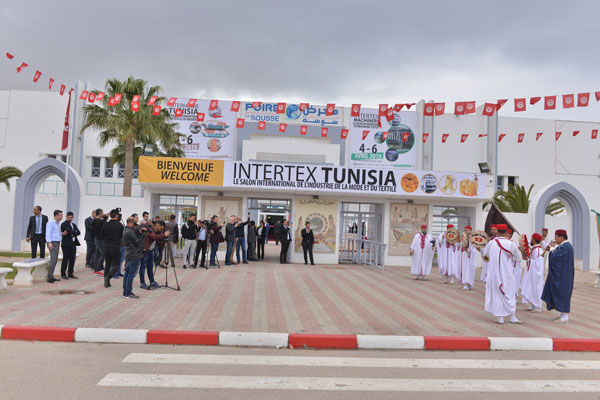
Algeria
The situation is markedly different in Algeria where the regime does not enjoy popular legitimacy. Algiers’ ban on political gatherings was seen as an opportunistic move on the part of the regime to quell the protests in the country which have been taking place for more than a year (Bianco, 2020).
Economic Impact
Notwithstanding the human costs, the impact would be felt most on the economic front as capital markets tumble, tourists evaporate in the midst of a ban on flights and lockdowns, and oil prices contract. Chinese buyers are involved in a significant portion of real estate transactions in Dubai (Ng, 2020). With China still recovering from the virus, these Chinese buyers have postponed making new purchases.
Given the bubble economy of Dubai with its glut of property, even before the virus, this city-state is confronting economic catastrophe. With the UAE cancelling its Expo 2020 and Saudi Arabia not allowing the annual haj pilgrimage to take place, hundreds of millions of dollars were lost for both states. The UAE was expected to attract 25 million visitors to its Expo 2020 event which was to be held in October 2020, and Saudi Arabia received 20 million religious pilgrims each year (Ng, 2020). Egypt, meanwhile, is losing an estimated US$1 billion per month in lost tourist revenue (Bianco, 2020).
It is perhaps in tumbling oil prices where the greatest economic impact will be felt. Oil is the core export for most Gulf Cooperation Council (GCC) states. Even before the pandemic, the price of a barrel of oil was on its way down, largely as a consequence of U.S. shale oil production and alternative renewable energy resources coming on line. Oil prices also went into free-fall after OPEC and Russia failed to arrive at a mutual agreement to cut oil production. Irked with Moscow’s recalcitrance, Riyadh decided to flood the market with oil, resulting in a calamitous decline in oil prices.
The impact of the pandemic will further depress the oil price as demand dries up. By March 2020, the price of a barrel of crude oil was US$31.35. Consider that at the beginning of the year the price of the same barrel was an estimated US$60. While oil prices are expected to stage a moderate come-back and trade at US$40 per barrel by December 2020, this is far below the break-even point for the oil producers of the MENA region (Ng, 2020).
This, in turn, holds political consequences. The rentier economies of the region are no longer sustainable and will have to tax their citizens. Will MENA citizens echo the battle-cry of American colonists against their British overlords in the 1700s and cry out in rage: No taxation without representation? It is clear that the already fragile polities across the region and ruling elites whose grasp of the political reins of power were always tenuous will have to open up political processes.

Yemen
When discussing the impact of Covid-19, it is imperative to add a caveat. The MENA region consists of states with differing capabilities and with widely divergent health systems and governance structures. While GCC countries have a GDP per capita of between US$20,000 and US$70,000 and can spend considerably more on health infrastructure, the same is not true of war-ravaged Yemen whose health system is ranked an abysmal 120th in the world (Arezki and Nguyen, 2020). The war raging on its territory has also damaged health infrastructure and created large numbers of internally displaced people.
A further 300,000 refugees, largely from Africa, adds to its burden. Yemen’s health system’s inability to respond to the corona virus is already reflected in the fact that the country has been unable to control a cholera outbreak that has been raging for four years, affecting two million of its citizens (Bianco, 2020).
A similar dynamic is at play in war-ravaged Syria where whole cities are locked down, and where almost half a million people have no water and little access to health facilities on account of the shelling of hospitals (Frantzman, 2020). Syria also poses a regional vector for contamination if one considers the 5.5 million refugees residing in neighboring states in unsanitary camps (Bianco, 2020).
Lebanon
Neighboring Lebanon, meanwhile, cannot embark on a stimulus package in the face of the pandemic. It defaulted on a US$1.2 billion Eurobond payment. As its economy is in free-fall, it does not have the wherewithal to fund its faltering health infrastructure. The shortage of foreign currency has also prevented Beirut from importing much-needed medical supplies. 2020 marks a century since Lebanon came into being (Riboua, 2020). There will be no centennial celebrations as the year may well mark the country’s annus horribilis.
Iraq
Similar to Lebanon, Iraq’s health system has been mismanaged for years on the part of the authorities. In Iraq, local authorities have no financial or technical resources to deploy against this health catastrophe (Riboua, 2020). The shortage of medical supplies and equipment and dearth of competent staff in the nation’s hospitals speak to the decades of neglect of the health sector. Only 2.5 percent of Iraq’s US$106.5 billion revenues is allocated to health.

Another problem challenging Baghdad’s response to the pandemic is the fact that the government enjoys scant legitimacy amongst its citizens. This was revealed in early March when health authorities banned public gatherings in an effort to flatten the curve of new infections. Demonstrators, however, refused to end their public protests, questioning the government’s motives in imposing the ban in the first place. According to the Iraqi Commission for Human Rights, more than 600 demonstrators were killed by security forces and government-supported militias. When this failed to quell the protest movement – so the narrative goes – government made use of the real threat of the pandemic spreading to curb all public protests.
One of those protesting was Alqasem Ahmed, a journalist. He summed up much of the protestors attitude to the ban on public gathering when he stated, “We see Covid-19 as a small threat when we are being killed with guns and live bullets. We have been facing death, poverty and corruption since 2003. This is the real virus and I don’t think we will find a cure” (Allinson, 2020).
The pandemic also brought into sharp scrutiny the close ties between the regimes in Baghdad and Tehran. Iran and Iraq share 21 border crossings. While Baghdad insisted that all border crossings were to close in fear of contagion spreading from Iran to Iraq, Tehran’s ambassador denied this. This prompted protestors to mobilize under the hashtag: “Shut the borders with Iran.” They proceeded to block the road to one such border crossing in Diyala province. The seeming inability to close borders with Iran and the affinity between Iraq’s fractious political leaders with the Iranian regime has resulted in further distrust towards the government and ordinary citizens questioning whether Iraq is a sovereign state or an Iranian colony (Allinson, 2020).
Concluding Insights
Every crisis brings opportunities. The devastation wrought by the Black Death to Europe between 1347 and 1353 resulted in greater reorganization and reconfiguration of European society, setting the basis for the Renaissance (Du Plessis, 2020). In order for a renaissance to occur in the MENA region, James Dorsey reminds us that it depends upon if “governments and elites have the foresight and the political will to build a new world order that is not only equitable but also creates the political, economic and social conditions for management of future pandemics at a potentially lower social and economic cost for all” (Dorsey, 2020).
It is tempting to assume that with the Covid-19 virus raging across borders that political elites will demonstrate this foresight; that countries will bury past enmities and join forces against the pandemic. Despite these trying circumstances, old habits persist despite the existential nature of the threat. In the midst of the Covid-19 pandemic, militants in the Gaza Strip decided to launch missiles on Israel whose armed forces retaliated against various Hamas targets (Abu Amer, 2020). Neither has the pandemic ameliorated the deep sectarian divisions within the region. Saudi Arabia intercepted two ballistic missiles fired by Tehran-aligned Houthi rebels in Yemen.
The Saudi capital, Riyadh, as well as the city of Jizan were targeted (Jerusalem Post, 2020). As Libya’s Tripoli-based Government of National Accord announced the country’s first Covid-19 case, Khalifa Haftar’s forces pummeled the capital with airstrikes (Daraghi, 2020).
As Yuval Noah stated, the world we will occupy after the pandemic will be a different one from the one we currently inhabit. This new world will require new ways of doing things as opposed to relying on old habits that have led the region to ruin. For the MENA region to experience its own renaissance, it needs political leadership to demonstrate the foresight to make a New World Order possible.
Hussein Solomon is senior professor in the Department of Political Studies and Governance at the University of the Free State, South Africa; a visiting professor at Osaka University, Japan; and a senior research associate at the Jerusalem-based Research on Islam and Muslims in Africa (RIMA).
This essay by Professor Solomon is part of a larger research project entitled “Arab MENA Countries: Vulnerabilities and Constraints Against Democracy on the Eve of the Global Corona Crisis” by the author and by Arno Tausch, continuing earlier publications in the Springer Nature series Perspectives on Development in the Middle East and North Africa (MENA) Region.
Join Us Now
Join 80.000 Middle East and North Africa Textile Professionals who get Kohan Textile Journal’s FREE Newsletter…



